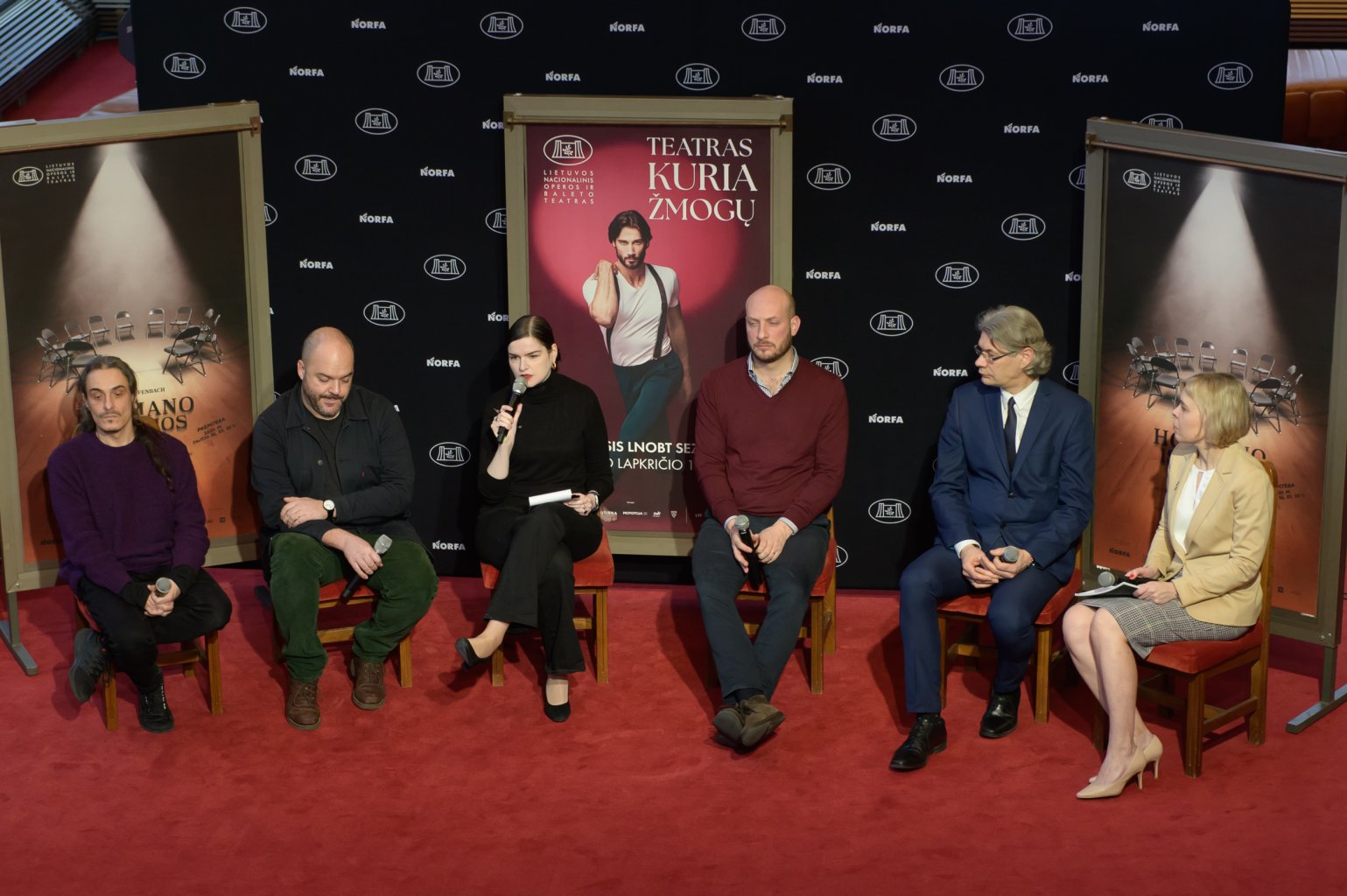
On 26 January, the audience will see yet another novelty in the repertoire of the Lithuanian National Opera and Ballet Theatre, which has been brought to life by a large team of Italian creators. Federico Grazzini, the Italian director who won the unique competition hosted by the LNOBT, says he couldn't pass up the opportunity to work in a country with a long-standing theatre and musical traditions.
Lithuanian artists joined by Italians
LNOBT's 104th season is as intense as ever. According to Audrius Kundrotas, the interim general manager of the theatre, it is great to see that in addition to the works of Lithuanian artists, the repertoire will also be enriched with performances of foreign guests.
"This is the fourth LNOBT premiere in the last three months. After three productions directed by Lithuanian artists, the repertoire shall now include the interpretation of "The Tales of Hoffman" by Italian director F. Grazzini and his creative team, who won a competition organised by the theatre. We are looking forward to seeing what the winners of the competition will present to our audience," – says A. Kundrotas.
Contemporary interpretation of the work
Grazzini, who comes from Florence, decided to take part in the first international competition for a director and creative team organised by the LNOBT, prompted by his admiration for the legendary Lithuanian director Eimantas Nekrošius, which began in his teenage years: “When I learned that a competition was being held in a country with such a lively theatre and music tradition, I decided to give it a try. And the work itself is extremely interesting."
According to the director, the creative challenge was not only that Jacques Offenbach's opera has a large cast of characters, but also that the composer died before completing it. Thus, in the dramaturgical picture of the opera, the ending has to be created by the director.
"Basically, together with my team we were looking for images that would speak to today's audiences. This led to the symbol of the gym as a place of training, a place of challenge, as well as a place for hosting the meetings of Alcoholics Anonymous. Hofmann is trying to escape his creativity, his obsessions, to close the door on what will ultimately become the driving force of his inner drama," – Grazzini shares his interpretation.
Emotionally uncomfortable, provocative
The opera's set design is inspired by the aesthetics of David Lynch's films, according to set designer Andrea Belli: "The first image the audience sees is a real place, with an everyday situation where Alcoholics Anonymous is meeting. Later on, each character's story starts to develop in its own way and the real situation is no longer there. It all starts to resemble a horror film," – says the creator. “The audience should feel a little uncomfortable with a picture that is supposed to be neatly symmetrical, but is not. This creates an emotional discomfort. That's what we're aiming for."
Sesto Quatrini, the music director and conductor of the production, agrees that this opera is a challenge and requires extra preparation on the part of the audience, because, "It is a very difficult work to conduct, to perform, to sing, but not to enjoy. The LNOBT audience will see a unique version through this production. Although the opera is not so simple, it has many complex characters, a certain schizophrenia, the production itself is provocative, but it encourages us to think about themes that are important and relevant to modern man."
Movement - the language of the soul
Opera, according to choreographer Angelo Smimmo, is theatre, and everything works in it – acting, directing, music and dance. The latter is also very important for the production of this work, because dance, as Smimmo says, is the language of the soul, which allows us to express what words or music cannot. He points out that people today no longer dance the way they did two hundred years ago when the opera was written, so he and the director have also been searching for a language of bodily movement that is more understandable to modern people.
The premiere performances of "The Tales of Hoffmann" will be presented at the LNOBT from 26 January to 3 February.